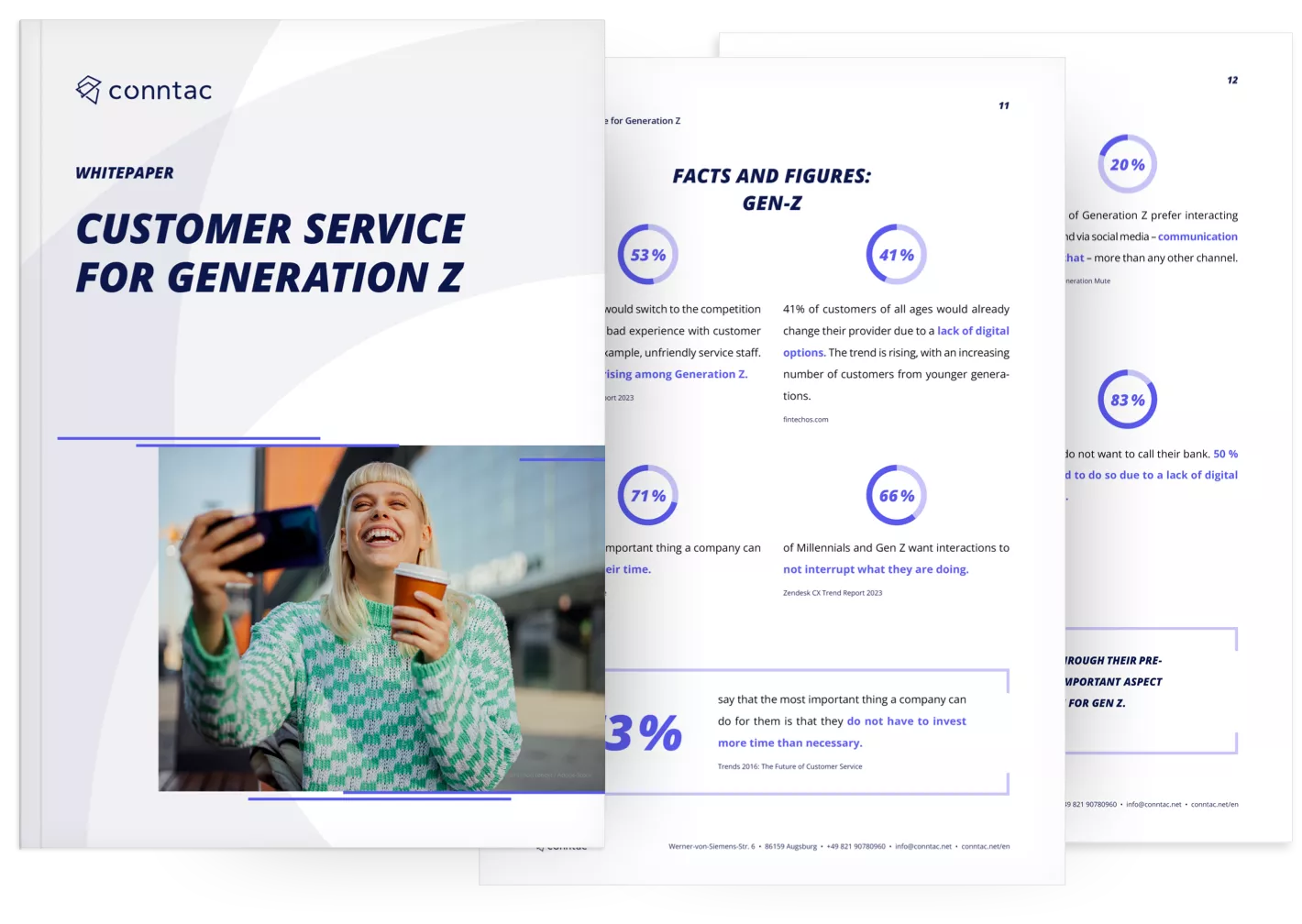Virtual assistants, AI, target groups – the customer service landscape is changing rapidly. It is essential for internet service providers (ISPs) to keep pace with these developments in order to remain competitive and meet the increasing demands of their customers. In this article, we look at how virtual assistants and Artificial intelligence (AI) for customer service and how a targeted approach to customer segments can lead to improved customer loyalty. The focus here is on the future of customer service, because according to a Study by PwC poor customer service is not just a missed opportunity, but a significant risk. Read our blog article to find out what makes good customer service.
Virtual assistants in customer service
Virtual assistants are software solutions that use natural language processing and machine learning to answer customer enquiries. These assistants can be used in various areas of customer service, from automated answers to frequently asked questions to support with technical problems.
The advantages for ISPs are obvious. Virtual assistants can be available around the clock, which significantly increases customer satisfaction. They also enable considerable cost savings as they reduce the need for human interaction in many cases. Nevertheless, care must be taken to strike a balance between technology and humanity. Successful practical examples from the industry show that companies that rely on virtual assistants can not only increase their efficiency, but also strengthen the bond with their customers. These developments are a key component of the future of customer service.
Artificial intelligence and machine learning
AI and machine learning are now an integral part of modern customer service strategies. By analysing and predicting customer enquiries, AI can help to proactively identify and solve problems before they escalate. It also enables the personalisation of services that are precisely tailored to the needs of individual customers.
However, the integration of AI into existing systems also poses challenges. Data protection and transparency are key aspects that must not be neglected. ISPs must ensure that the use of AI complies with legal requirements and ethical standards. Clear guidelines and open communication with customers are crucial here. The role of AI will become increasingly important in the future of customer service.
Target group analysis and approach
You have to think about tomorrow’s target groups today. A well-founded target group analysis is of great importance for ISPs. Only those who know their customers precisely can offer them the service they expect. Methods for identifying and segmenting target groups are therefore indispensable. Age groups, technical affinity and user behaviour are key criteria here.
Adapting customer service to different target groups requires a flexible and differentiated approach. Technically savvy customers expect different solutions than less experienced users. Practical examples show that a target group-specific customer service strategy leads to a higher level of customer satisfaction. Customer Satisfaction and loyalty. The future of customer service depends crucially on how well ISPs can understand and address their target groups.











